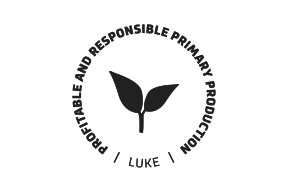New project offers more information about the impact of diversified crop production in Finland
Sustainable crop production calls for diversified farming – a shift away from monoculture which impoverishes the soil. The joint project of the Natural Resources Institute Finland (Luke), companies and agricultural interest groups will offer more information about the impact of various farming practices on the sustainability and profitability of crop production.
The availability of information about the impact of various crops, long-term crop rotation and farming practices on the sustainability and productivity of crop production in boreal conditions is still fairly limited. The crop production project about to start will focus on long-term crop rotation. It will also investigate mixed cropping and intercropping systems.
“It is truly wonderful that companies want to invest in the diversification of crop production and the study of crop rotation in the long term. In this project, we can combine Luke’s research with the expertise of companies and farms, and seek solutions that address the perspectives of production, the environment and finances. An interesting project is about to start,” says Sirpa Thessler, Vice President of Luke’s Natural Resources unit.
According to Rauno Sillanpää, QESH Manager at Sinebrychoff, the joint project supports the company’s goals. “To achieve our ambitious climate goals, we require large-scale cooperation between different parties. Our aim is to increase the volume of regenaratively farmed malting barley, and Luke’s scientific research supports our ESG activities excellently. Sinebrychoff wants to help reduce the environmental impact of agriculture, and improve soil fertility and biodiversity.”
New information provided with farms and companies
The project will use extensive monitoring and satellite data to identify the current state of diversified crop production and compare different farms. The five-year crop rotation trial will provide new information especially about yields, carbon sequestration and the optimal use of legumes. The crop rotation trial will start next spring on Luke’s field in Jokioinen. The project will assess the environmental and financial impact of diversified c production at the level of parcels.
Furthermore, the project will invest heavily in cooperation with farmers. Its key goal is to use the bidirectional exchange of information and experience between researchers and farmers, and offer recommendations for political decision making.
“It is wonderful that crop production is supported by such a large research project. We need more research data about how different crops, together with catch or intermediate crops, support climate-neutral primary production. Research will confirm the impact of catch crops on the environment and soil fertility. The most ideal time for such an extensive project was already yesterday,” says Max Schulman, Advisor at the Central Union of Agricultural Producers and Forest Owners (MTK).
The project will be conducted following Luke’s Private–Public Partnership (PPP) model with MTK, the Central Union of Swedish-speaking Farmers and Forest Owners in Finland (SLC), Olvi plc, Raisio plc, Viking Malt Oy, Anora Group plc, and Oy Sinebrychoff Ab.


